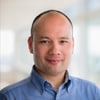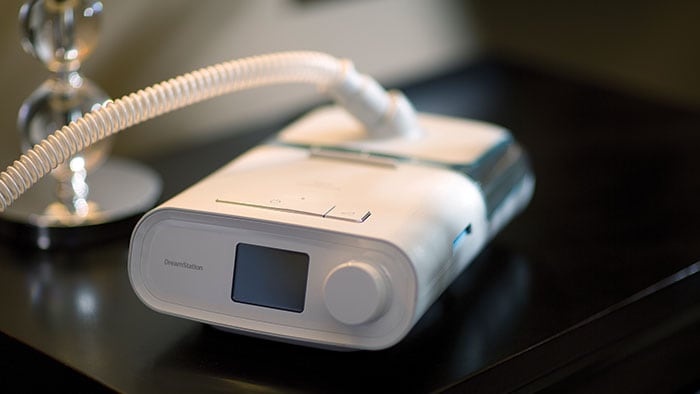Jul 24, 2023
Philips Respironics - PE-PUR testing results and conclusions available to date
Philips Respironics provides the latest results and conclusions on the comprehensive test and research program to assess potential health risks related to the polyester-based polyurethane (PE-PUR) sound abatement foam in specific sleep therapy and ventilator devices under the voluntary June 2021 recall notification/field safety notice.* The risk assessments had already been completed for the first-generation DreamStation, System One and DreamStation Go sleep therapy devices (representing ~95% of the registered devices globally) that had not been exposed to ozone cleaning in line with the instructions for use. Additionally, tests and analyses had been completed for first-generation DreamStation devices that have been deliberately exposed to multiple cycles of ozone cleaning. The relevant updates can be accessed here: December 2021, June 2022, December 2022, and May 2023.
The impact of ozone cleaning on foam degradation in System One and DreamStation Go sleep therapy devices
Philips Respironics has completed testing and analyses on System One sleep therapy devices that have been exposed to ozone cleaning:
ISO 18562-3 VOC testing was conducted after up to 500 ozone cleaning cycles with each cycle simulating one night of use and then ozone cleaning. The VOC toxicological risk of this ozone-induced degradation determined that exposure to VOC emissions from the assessed System One devices exposed to ozone cleaning suggests no appreciable risk to health for patients.
Regarding risks associated with respirable and non-respirable particulates, testing to date has been performed on devices with known ozone exposure. The third-party collective analysis concluded that exposure to particulate matter from ozone-induced degraded foam in System One devices is unlikely to result in appreciable harm to health in patients.
A third-party review concluded that the testing results on the first-generation DreamStation devices and System One devices are applicable to DreamStation Go devices to determine health risks for patients from ozone treatment and foam degradation, based on multiple lines of evidence including, but not limited to, the same intended use, the same operating parameters, the same type of foam, the same foam degradation products, less foam contained within DreamStation Go, and the conservative, protective nature of the testing and risk assessments performed.
Additional visual inspection of the foam in used first-generation DreamStation devices confirms the low prevalence of significant visual foam degradation/volume reduction
US and Canada: Europe and Japan:
Summary of ongoing tests
Philips Respironics is in the process of completing various remaining tests and analyses. For the Trilogy 100/200 and OmniLab Advanced Plus ventilator devices, VOC and PM testing continues, as well as chemical evaluation and toxicological risk assessment. These devices contain a different type of PE-PUR foam than the first-generation DreamStation devices [1]. Philips Respironics expects to provide an update on this in Q3 2023.
Guidance for healthcare providers and patients
Patients currently using an affected sleep therapy device that has not been remediated and not registered yet, are requested to register their devices to facilitate the remediation.
Philips Respironics continues to advise patients using affected sleep therapy devices that have not been remediated yet to contact their physician or care provider to decide on a suitable treatment for their condition, which may include stopping use of their device, continuing to use their affected device, using another similar device that is not part of the recall, or using alternative treatments for sleep apnea. Moreover, patients are advised to follow Philips Respironics’ instructions and recommended cleaning and replacement guidelines for their sleep therapy device and accessories. Ozone and UV light cleaning products are not currently approved cleaning methods for sleep therapy devices or masks and should not be used.
Philips Respironics also continues to advise users of ventilator devices to contact their healthcare providers before making any changes to their therapy.
Scientific underpinning of the test methods
The test and research program has been conducted together with five independent, certified testing laboratories, and the results have been reviewed and assessed by third-party qualified experts and Philips Respironics., as well as an external medical panel. The applied test methods – comprising test planning, test execution, and interpretation of the results for the completed risk assessments – are in accordance with the applicable ISO 18562 [2,3] and ISO 10993 [4] industry standards.
The design of the applied test methods was scientifically underpinned based on a thorough consideration and mitigation of testing limitations that are inherent to any test standard and/or scientific research. To illustrate this, examples of such considerations and mitigations have been listed below.
The scientific underpinning of the applied test methods included a thorough consideration and mitigation of testing limitations, for example:
Notes
* Voluntary recall notification in the US/field safety notice for the rest of the world.
[1] First-generation DreamStation, System One and DreamStation Go devices contain Type A PE-PUR foam, while Trilogy 100/200 devices contain Type B PE-PUR foam, and OmniLab Advanced Plus devices contain Type A and Type B PE-PUR foams. The known differences between the Type A and Type B foams are that Type B foam can be used with an acrylic pressure sensitive adhesive, has a lower density, has a different thickness, and also contains an additive to reduce potential flammability.
[2] ISO 18562-2: Biocompatibility evaluation of breathing gas pathways in healthcare applications – Part 2: Tests for emissions of particulate matter.
[3] ISO 18562-3: Biocompatibility evaluation of breathing gas pathways in healthcare applications – Part 3: Tests for emissions of volatile organic compounds.
[4] ISO 10993: Biological evaluation of medical devices; Part 1: Evaluation and testing within a risk management process; Part 3: Tests for genotoxicity, carcinogenicity and reproductive toxicity; Part 5: Tests for in vitro cytotoxicity; Part 10: Tests for irritation and skin sensitization; Part 17: Establishment of allowable limits for leachable substances; Part 18: Chemical characterization of medical device materials within a risk management process.
About Royal Philips
Royal Philips (NYSE: PHG, AEX: PHIA) is a leading health technology company focused on improving people's health and well-being through meaningful innovation. Philips’ patient- and people-centric innovation leverages advanced technology and deep clinical and consumer insights to deliver personal health solutions for consumers and professional health solutions for healthcare providers and their patients in the hospital and the home. Headquartered in the Netherlands, the company is a leader in diagnostic imaging, ultrasound, image-guided therapy, monitoring and enterprise informatics, as well as in personal health. Philips generated 2022 sales of EUR 17.8 billion and employs approximately 71,500 employees with sales and services in more than 100 countries. News about Philips can be found at www.philips.com/newscenter.
Forward-looking statements
This statement contains certain forward-looking statements with respect to the financial condition, results of operations and business of Philips and certain of the plans and objectives of Philips with respect to these items. Examples of forward-looking statements include statements made about the strategy, estimates of sales growth, future EBITA, future developments in Philips’ organic business and the completion of acquisitions and divestments. By their nature, these statements involve risk and uncertainty because they relate to future events and circumstances and there are many factors that could cause actual results and developments to differ materially from those expressed or implied by these statements.
Topics
Contacts

Steve Klink
Philips Global Press Office Tel: +31 6 10888824
You are about to visit a Philips global content page
Continue
Elco van Groningen
Philips Global Press Office Tel: +31 6 8103 9584
You are about to visit a Philips global content page
ContinueMedia assets


